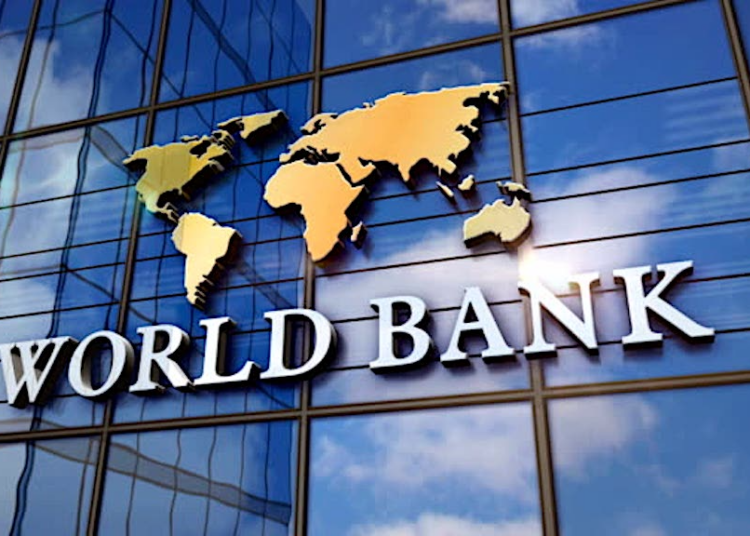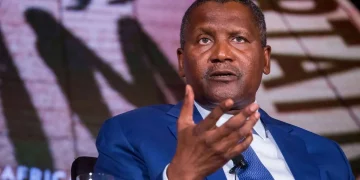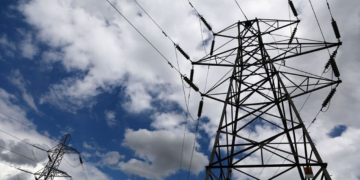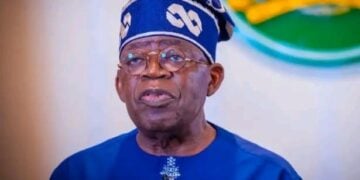With the latest loan receipt from World Bank to the tune of 800 million dollars by the federal government which is to be disbursed to 50 million vulnerable Nigerians as fuel subsidy removal palliative, an Abuja based lawyer and development expert, Mr Chyma Anthony has advised President Muhammadu Buhari to consider investment in profit making ventures like urban mass transit scheme, agribusiness and others instead of disbursing same to poor Nigerians.
Anthony who was reacting to the loan receipt by the federal government in a press statement yesterday in Abuja suggested that a committee be set up by the FG to ascertain results recorded in the previous disbursements made to vulnerable Nigerians through the Ministry of Humanitarian Affairs and Disaster Management so as to know which area to channel the latest facility for the good of all Nigerians.
“I don’t think it will be nice again to spend a whopping sum of 800 million dollar loan obtained from World Bank on 50 million vulnerable Nigerians as palliative for fuel subsidy removal.
“We need to know if the ones already disbursed to these vulnerable Nigerians have yielded any result. “Some of these poor beneficiaries ended up spending the monies given to them by the federal government on frivolities rather than in economic activities that could keep them and their families going. “Some of them may have been short changed, yet their names may have been used to retire such monies and our dear President may not be aware,” Anthony stated.
The Rights Activist and All Progressives Grand Alliance (APGA) Senate candidate for Imo East Senatorial District in the just concluded 2023 elections, said the borrowings that have characterised the present APC administration were not done in bad faith, but the application of the facilities may not have yielded the desired results due the areas they were channelled to, and absence of committees to review performances periodically. “So far, Nigeria’s debt profile has hit N77 trillion, and we are yet to add the latest 800 million dollars already from the World Bank.
“I don’t believe that everything is entirely wrong with the loan or credit facility. Mr President actually meant well in most of his attempts to secure loans.
“I make bold to advise Mr President that the 800m dollar loan from the World Bank be invested into profit yielding ventures like subsidised urban mass transit scheme, agrobiz and others.
“Imagine buying and deploying five buses to each of the 774 local councils under the Federal Government Urban Mass Transit Scheme. The buses would move Nigerians from one city to another at subsidised rates.
“Assuming other commercial buses charge a passenger N1, 000 from Abuja to Kaduna, or from Ikeja to Abeokuta or from Owerri to Port Harcourt, this FGN urban mass transit can charge N500 and still make profits to maintain the vehicles, pay workers, repay the loan, and more importantly assuage the citizens in the face of the subsidy removal,” he added.
Anthony said he was also not too comfortable with subsidy removal with non-functional refineries, noting it may spell doom for most Nigerians.
According to him, importing fuel from Niger Republic as planned by the Ministry of Petroleum Resources will not be the end of it all.
He further stated that “I suggest we possibly use part of the $800m to fix one or two of our refineries to avert endless importation of petroleum products.
“But even if we must embrace the subsidy removal regime, it should be gradual, and with a human face.
“We should know how much we spend subsidising one litre of any petroleum product. We should also know how much oil producing countries without a subsidy regime sell a litre of fuel before we fix our own prices so that Nigerians will not continue to suffer untold hardship when the subsidy is eventually removed.”
The post subsidy removal era, Anthony said, should not be without serious petroleum pump price regulation.
He said Nigerians should know the landing cost of petroleum products in any part of the country so that greedy petroleum marketers don’t continue to rip the nation off.
He submitted that fuel stations must be made to sell at unified government regulated prices to forestall a situation where people will buy one litre of fuel at N200 for instance in Abuja while Lagos or Owerri sells at N150 per litre.
We’ve got the edge. Get real-time reports, breaking scoops, and exclusive angles delivered straight to your phone. Don’t settle for stale news. Join LEADERSHIP NEWS on WhatsApp for 24/7 updates →
Join Our WhatsApp Channel










